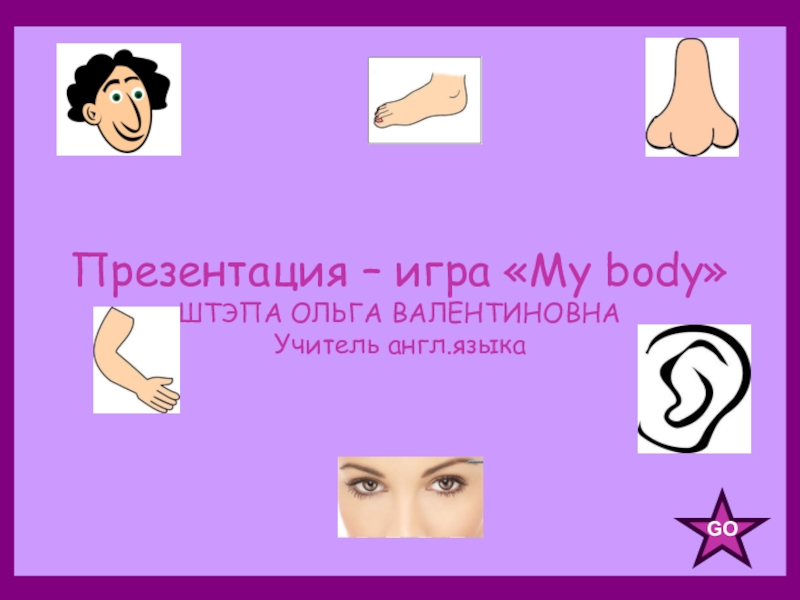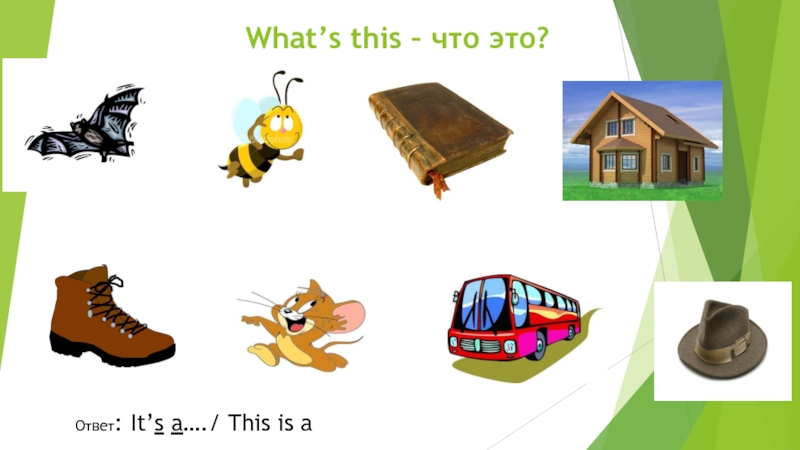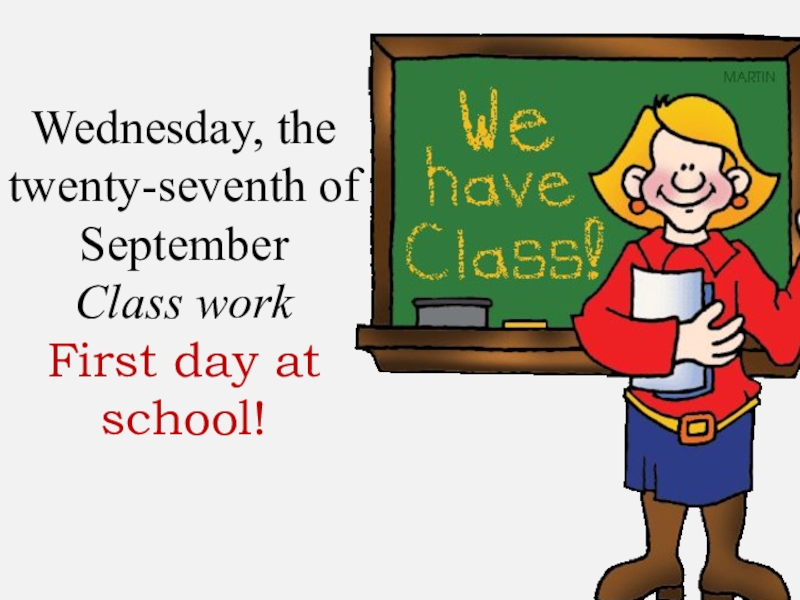Lesson plan on the theme
“ What’s the weather?” in class 4
by an English teacher
Kosimova Dilorom Valijonovna
- Главная
- Разное
- Образование
- Спорт
- Естествознание
- Природоведение
- Религиоведение
- Французский язык
- Черчение
- Английский язык
- Астрономия
- Алгебра
- Биология
- География
- Геометрия
- Детские презентации
- Информатика
- История
- Литература
- Математика
- Музыка
- МХК
- Немецкий язык
- ОБЖ
- Обществознание
- Окружающий мир
- Педагогика
- Русский язык
- Технология
- Физика
- Философия
- Химия
- Шаблоны, фоны, картинки для презентаций
- Экология
- Экономика
Презентация, доклад по английскому языку на тему What's the weather (4 класс)
Содержание
- 1. Презентация по английскому языку на тему What's the weather (4 класс)
- 2. Date : November 20Form : 4 BTheme
- 3. The type of the lesson: mixed
- 4. The block-scheme of the lesson:
- 5. The procedure of the lesson:Organizational part: 1
- 6. b)Checking the previous lesson and homework.
- 7. II. Work on new theme ( 2.
- 8. Spring, Summer, Autumn, Winter.Spring,
- 9. In the summer, in the summer,It’s very
- 10. In the autumn, in
- 11. In the winter, in
- 12. Activity2 Work in groups. Play “Find
- 13. Activity 3 Play “Touch the
- 14. Activity 4a Read. Write
- 15. Слайд 15
- 16. .AprilDecember February JanuaryJulyJuneMarchMayNovemberOctoberSeptemberAugust Bob: I’m with
- 17. Слайд 17
- 18. .AprilDecember February JanuaryJulyJuneMarchMayNovemberOctoberSeptemberAugust Activity 4c Read and
- 19. Слайд 19
Слайд 1?
Odami ersang demagil odami ,
Onikim yo’q xalq g’amidin g’ami .
Tashkent city
Yashnobod
Слайд 2Date : November 20
Form : 4 B
Theme : What’s the weather?
The aims of the lesson:
Educational:
Knowledge –to learn to say and write about the weather in Uzbekistan
Skill - to enable pupils to say the weather;
Ability- to learn to describe a season;
Developing:-to learn to describe a season to enable pupils to say and write about the weather ;
Socio-cultural:
- to raise awareness of the seasons of Uzbekistan;
Слайд 3The type of the lesson: mixed type of the lesson
The method of the lesson : CLT ( Communicative Language Teaching)
The way of teaching : deductive
The interaction : group work , individual work
Learning outcomes :
At the end of the lesson, pupils will be able to:
- say about the weather in winter in Uzbekistan;
-write about the summer in Uzbekistan ;
-to describe a season
The equipment: weather flashcard pictures for sunny, rainy, windy, cloudy, snowy, warm, hot, cold, cool weather, the DVD , test-cards , textbooks, workbooks , projector , markers
Слайд 5
The procedure of the lesson:
Organizational part: 1 a) Greeting
The song “ Good morning !”
T: Good morning pupils ,good morning dear guests ! You are welcome!
Let’s begin our lesson !
Who is on duty today?
What’s your name ?
How are you ?
How old are you ?
What’s the day today ?
And today is November 20.
Слайд 6
b)Checking the previous lesson and homework.
Homework.
Change the
Yesterday my mum went shopping in the morning. Mum cooked breakfast and then I went to school.
Before lunch I saw my English teacher. After lunch I played with my friends. I came home at 2 o’clock. I had dinner at six o’clock. Then I watched TV. I went to bed at nine o’clock.
Слайд 7
II. Work on new theme ( 2. Presenting and 3.Practicing )
Activity 1 Listen and sing.
Play the DVD. Ask the pupils to listen to the song and repeat it.
Look at Unit 5 Lesson 1 Activity 1 for the DVD script.
Слайд 8
Spring, Summer, Autumn, Winter.
Spring, Summer,
In the spring, in the spring,
It’s nice and warm, nice and warm,
In the spring, in the spring,
It’s nice and warm, nice and warm,
Let’s go for a park!
Слайд 9In the summer, in the summer,
It’s very hot, very hot,
In the
It’s very hot, very hot,
Let’s go for swimming!
Слайд 10
In the autumn, in the autumn
It’s
In the autumn, in the autumn
It’s nice and cool, nice and cool,
Let’s go for a walk!
Слайд 11
In the winter, in the winter,
It’s
In the winter, in the winter,
It’s really cold,really cold,
Let’s play with the snow!
Слайд 12 Activity2 Work in groups. Play “Find the mistake”. 10 min
Objective:
STEP 1: Make groups of 5. Explain that every group will write past tense sentences about yesterday’s chores on separate pieces of paper but they have to make a mistake when writing the verb (most pupils will really enjoy being allowed to make a mistake on purpose!). For example, “Yesterday I have breakfast at 7 o’clock.”
STEP 2: After writing some sentences on different pieces of paper, have the pupils swap papers with other groups and make corrections.
Слайд 13
Activity 3 Play “Touch the cards.” 10 min
Objectives: to
to practise saying the weather outside
STEP 1: Invite a pupil to walk around the classroom touching the weather cards and saying the weather, for example, ‘It’s sunny’ and having the pupils repeat after him/her.
STEP 2: Next, get all your pupils to stand up. Shout out a weather word, for example, ‘It’s rainy!’ and the pupils have to run over to the correct picture, touch it and say the weather. If you have a lot of pupils it is worthwhile having multiple pictures of each card placed around the walls of the room.
STEP 3: Invite the pupils to come over to the window. Say: ‘Look outside! What’s the weather?’ Elicit from the class the weather, and if it is hot, cold, cool or warm. For example, ‘It’s cloudy and rainy. It’s cold’. Then ask each pupil in turn: ‘What’s the weather?’ and encourage them to reply.
Слайд 14
Activity 4a Read. Write T for
Objectives: to practise reading for detailed information;
to develop the pupils’ reading skills.
STEP 1: Ask the pupils to read the sentences and write T for true and F for false sentences in their Workbooks.
STEP 2: Go through the sentences one by one asking the pupils if they are true or false. If the pupils say ‘False’, ask them to correct the information.
1) The winter in Uzbekistan is in December, January and February. True.
2) The weather is always warm in winter. False. The weather is always cool and cold.
3) Snow never falls in winter.
4) It is usually cold in winter.
5) Sometimes the rain pours in December.
6) There are sometimes windstorms and thunderstorms in December.
7) The sun sometimes shines in January.
8) Sometimes hot wind blows. False. Hot wind never blows in winter.
9) February is often cloudy, rainy, windy and warm. .
10) We can usually see snowstorms in winter.
Слайд 15
Activity 4b Listen and check. 5 min
Objectives: to practise listening for specific information;
to develop the pupils’ listening skills.
Play the DVD. Ask the pupils to check if they were right or wrong in Activity 4a.
DVD script:
Bob: Hi, friends! We went to Uzbekistan for the summer holidays. We were in Tashkent, Samarkand, Shakhrisabz, Bukhara and Khorezm and saw very beautiful old buildings.
Ann: And the weather in Uzbekistan … ?
Bob: It was sunny and hot. There was no rain.
Tim: Is there winter in Uzbekistan? Does snow fall there?
Bob: I don’t know. I have a friend in Tashkent. Let’s phone and ask him!
Ring, ring, ring
Timur: Hello Bob! How are you?
Bob: Hi, Timur! I’m fine, thank you! And you?
Timur: So-so. What are you doing?
Слайд 16.
April
December
February
January
July
June
March
May
November
October
September
August
Bob: I’m with my friends. They’re asking
Timur: Yes! There are three months of winter in Uzbekistan. They’re
December, January and February. The weather is usually cold and it often snows.
Bob: Is there rain in winter?
Timur: Yes, sometimes the rain pours. There are sometimes windstorms and thunderstorms in December.
Bob: Are there sunny days?
Timur: Yes, the sun sometimes shines in February.
Bob: Are there windstorms in February?
Timur: No, never. February is often cloudy, rainy, windy and warm.
Bob: Thank you very much, Timur. My friends are saying hello to you.
Timur: Say hello to your friends, too. Bye.
Bob: Bye, Timur.
Слайд 18.
April
December
February
January
July
June
March
May
November
October
September
August
Activity 4c Read and answer the question. 5
Слайд 19
Homework 3 min
Ask the pupils to open their Workbooks and look at Homework 1. Check that everybody understands what to do. If necessary, explain that they must write some sentences about summer in Uzbekistan. Tell them that they must add false info about summer as in Activity 4a. Their partner will write true or false for them. In Homework 2 the pupils will write the description of a season but do not write what season it is. Again their partner or classmates will find the answer.
Note: Ask the pupils to bring the pictures/photos of different sights of their region for the next lesson as they are going to make a poster about it. If possible, you need to print out your region’s map to use for the post
























